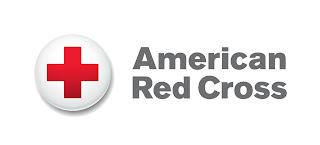Washington: The American Red Cross is continuing a major relief
operation throughout the Mid-Atlantic and Northeast to shelter and assist
people affected by Superstorm Sandy. Millions awoke this morning to power outages,
fallen trees, scattered debris, and flooded neighborhoods and the Red Cross is
working hard to get help where it is needed.
Nearly 11,000 people spent Monday night in more than 250 Red
Cross shelters across 16 states including New Jersey, New York, Pennsylvania,
Connecticut, Rhode Island, Maryland, Delaware, Virginia, West Virginia, North
Carolina, Massachusetts, Vermont, New Hampshire, Maine, Indiana, and Michigan.
These numbers could increase as the storm moves into cities like Chicago,
Cleveland, Detroit and Milwaukee with heavy wind, rain and snow.
"Our first priority is to get people the help they need
– providing families and individuals with a safe place to stay and food to eat,"
said Charley Shimanski, senior vice president of Disaster Services for the Red
Cross. "While it is too early to know the full extent of Sandy's damage,
we expect to be working with a variety of partners to help people for the next
several weeks."
The Red Cross has mobilized 1,700 disaster workers from all
over the country who have served more than 25,000 meals and snacks so far. We
have also activated 167 response vehicles and shipped in more than 230,000
ready-to-eat meals. This is a huge disaster, bigger than any one organization
can handle and the Red Cross is working closely with multiple partners
including a variety of civic groups, advocacy organizations, professional
organizations and houses of worship to share their expertise and volunteers.
In areas hit by this storm, the Red Cross urges people to
check on their neighbors, make sure everyone is okay, and take care of each
other until help arrives. Everyone should follow the direction of their local
officials during this disaster – evacuate if told to do so, stay in a safe
place and off the roads until the storm is over, and do not return home until
officials say it is okay.
"The Red Cross response to Sandy is very large and will
be very costly, affecting a massive area spanning much of the eastern half of
the country. We need the public's help now," Shimanski further said.
Approximately 300 Red Cross blood drives have already been
cancelled due to the storm, and more are expected. The Red Cross is urging
immediate blood and platelet donations in areas unaffected by this storm and
asks that people in the affected areas consider donating blood once the storm
passes through and it's safe to do so.



